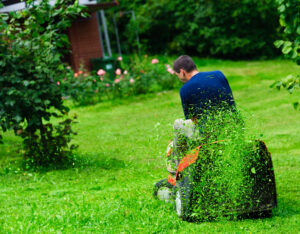Understanding Pesticide Certification in New York
Becoming a certified pesticide applicator in New York is essential for individuals who wish to work in pest control, landscaping, or agriculture. The process ensures that professionals handle pesticides responsibly and minimize environmental risks. Certification is regulated by the New York State Department of Environmental Conservation (NYSDEC), which establishes the training requirements, examinations, and renewal procedures.
Why Pesticide Certification Matters
Pesticides are powerful substances designed to manage pests effectively, but improper use can pose risks to human health and the environment. Certification provides applicators with the knowledge to use pesticides safely and legally. It ensures compliance with state laws and regulations while protecting communities from potential pesticide-related hazards.
Who Needs Pesticide Certification?
Not everyone using pesticides requires certification, but it is mandatory for:
- Individuals applying restricted-use pesticides (RUPs)
- Commercial pesticide applicators
- Private applicators working on farms or agricultural settings
- Supervisors overseeing pesticide applications
Even if a person applies general-use pesticides as part of their job, employers may still require certification to ensure safety and compliance.
The Steps to Getting Certified
The pesticide certification process in New York involves several key steps:
1. Determine Your Certification Category
There are multiple certification categories in New York, each tailored to specific industries. Some common categories include:
- Agricultural Plant and Animal Pest Control
- Structural Pest Control
- Ornamental and Turf Pest Control
- Right-of-Way Pest Control
- Aquatic Pest Control
- Public Health Pest Control
Each category has its own set of training and examination requirements.
2. Meet the Eligibility Requirements
Before applying for certification, individuals must meet certain eligibility criteria, including:
- Being at least 17 years old
- Completing an approved training program or having relevant experience
- Passing the required exams
Commercial applicators typically need experience or education in pesticide use, while private applicators can qualify through training programs.
3. Complete the Required Training
Training is a crucial part of the certification process. New York requires candidates to complete a training course approved by NYSDEC. The training covers essential topics such as:
- Pesticide laws and regulations
- Safe handling and application techniques
- Environmental protection
- Pest identification
- Personal protective equipment (PPE)
4. Take the Certification Exam
Once the training is complete, candidates must pass a certification exam. The exam tests knowledge of pesticide safety, regulations, and application methods. It consists of a general core exam and a category-specific exam. Passing both sections is necessary for certification.
5. Submit Your Application
After passing the exam, candidates must submit an application to NYSDEC, along with the required fees. Processing times may vary, so it is essential to apply well in advance of when certification is needed.
6. Maintain and Renew Certification
Pesticide applicators must renew their certification periodically by completing continuing education courses. This ensures that they stay updated on new laws, techniques, and safety practices.
The Benefits of Online Training
With advancements in technology, online training has become a popular choice for aspiring pesticide applicators. Online courses offer flexibility, allowing students to learn at their own pace from the comfort of their homes.
Some of the key benefits of online pesticide training include:
- Convenience: No need to travel to a training center
- Self-Paced Learning: Study at your preferred speed
- Access to Resources: Online materials, videos, and quizzes enhance learning
- Compliance with NYSDEC: Many online courses are state-approved
Online training is ideal for individuals who have busy schedules or prefer a more flexible learning environment.
How to Choose the Right Online Pesticide Course
When selecting an online training program, it is crucial to ensure that the course is NYSDEC-approved. Here are some factors to consider:
- Accreditation: Check if the course is officially recognized by NYSDEC
- Content Quality: Ensure the curriculum covers essential topics required for certification
- User-Friendly Platform: Look for a course that is easy to navigate
- Customer Support: Reliable support can be helpful in case of technical issues
- Reviews and Ratings: Feedback from past students can provide insights into the course’s effectiveness
Choosing the right training program is a critical step in becoming a certified pesticide applicator.
The Importance of Continuing Education
Certification is not a one-time process. To maintain their credentials, pesticide applicators must complete continuing education courses. These courses help professionals stay up to date with:
- Changes in pesticide laws and regulations
- New pesticide products and technologies
- Advanced pest management strategies
- Safety and environmental protection measures
Continuing education ensures that applicators remain knowledgeable and compliant with state regulations.
Job Opportunities for Certified Pesticide Applicators
Becoming a certified pesticide applicator opens the door to numerous career opportunities. Certified individuals can work in:
- Pest control companies
- Landscaping and lawn care businesses
- Agricultural settings
- Public health agencies
- Forestry and natural resource management
With certification, individuals can enhance their job prospects and potentially earn higher salaries due to their specialized skills.
The Future of Pesticide Application
The pest control industry is evolving, with new technologies and environmentally friendly pest management solutions emerging. Integrated Pest Management (IPM) is becoming more popular, focusing on reducing pesticide use while effectively managing pests. As the industry continues to advance, certified applicators will need to stay informed about new practices and regulations.
Final Thoughts
Becoming a certified pesticide applicator in New York is a valuable investment for anyone looking to build a career in pest control, landscaping, or agriculture. The process involves completing the required training, passing the certification exam, and staying up to date with continuing education.
For those seeking a flexible learning option, NYS 30 hour pesticide course online is an excellent choice. It allows individuals to complete their training at their own pace while meeting state requirements.
With certification, professionals can ensure safe and effective pesticide application while complying with New York’s regulations. Whether working in agriculture, public health, or landscaping, a pesticide certification provides essential knowledge and career opportunities. By staying informed and continually improving skills, certified applicators can contribute to safer and more sustainable pest management practices.









